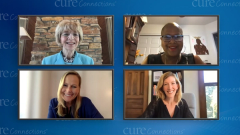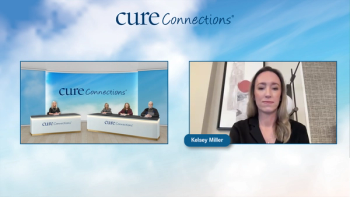
Racial Disparities Faced by Women of Color with Breast Cancer
Sheila McGlown identifies the racial disparities that exist in the treatment of breast cancer, particularly those faced by women of color, and discusses reasons why these disparities may exist.
Episodes in this series

These are the experiences and opinions of panelists, not physicians.
Shirley A. Mertz, MA, JD: This topic will reveal I think the reality that not all individuals have the same outcomes when they are diagnosed with metastatic breast cancer. In particular, there is a persistent mortality gap between African American and white women. I looked at the breast cancer research foundation, a recent document that they put out and there they said that black women were found to have a slightly lower incident rate of breast cancer. However, this has been changing and the incidence incident rate for black women is close to that of white women. However, the mortality rates are markedly different with black women having a 40% higher death rate from breast cancer, and among women under 50, the disparity is even greater and the mortality rate among young black women is double that of young white women. Sheila, given your expertise and the advocacy that you do, on behalf of this issue, could you add either to my description of the disparities and share with us what you feel are the reasons for the disparities?
Sheila McGlown: Well, as you said, we black women die at a 42% faster rate than any other race that are diagnosed with breast cancer and I've always asked the question, it's been 11 years since I was diagnosed and that statistic hasn't changed, so what are we doing wrong as a society. It's been the same statistics. We're doing something wrong. Is it with the doctors or oncologists or is it- And I know there is a lot of a great deal of medical mistrust in the black community as far as we know that the Tuskegee syphilis project that they did in the Henrietta Lacks but I also think we need to continue to educate the black community and that's my platform is to continue to educate about breast cancer? We know that triple-negative is a very aggressive breast cancer and black women are diagnosed- There's a high percentage rate of triple-negative in the black community, so what are we doing to change this. There are so many different things, I made up a checklist, I started a checklist, even Lisa mentioned palliative care, black patients don't know about palliative care. Why aren't doctors asking them about palliative care, then I was reading that 25% of black patients aren't even offered Herceptin. Why is that? Why are we worthy of Herceptin? There are so many statistics out that they need to be changed and racial disparities. How do you see me as a black woman coming into your office as a white oncologist? You see me as an equal or do you need to check your bias at the door and just see me as one patient? As I've always said that patient advocates should go into before students can become doctors and let me go in there and tell you my story and help you understand the biases and the implicit biases that go on in the healthcare community. And one of the things I've heard too that black women can endure pain more. I'm scared of needles too but that's a myth.
Shirley A. Mertz, MA, JD: Oh my, I never heard that one.
Sheila McGlown: That's not true. We have to continue to work with hospitals and medical oncologists and work with professionals to see what are they doing wrong as far as racial disparities because I'm working to help ending- But it's just like we all need to work together. We all need to because it's a do you know that your patient is a single parent or not. 70% of black women are single parents so do you know if your patient has transportation. Those are some of the social determinants of health. Transportation, do you know if your patient has, what about daycare. Some black patients in care because they can't afford the co-pays. Had the doctor even asked you how you are going to get back and forth to treatment or how are you going to pay for your copay if you have copay or prescription or- You should know your patient. You should understand your patient up and then 80% of black people go to community hospitals. They don't go to research hospitals like I do, and I'm blessed but what are we doing in community hospitals, how are we reaching out to community hospitals. There are a lot of things that we need to just work on as a community as a whole as a society to, like I said, to end racial disparities. And it takes a village and it's going to take all of us I think to end those because black women are worthy too.
This transcript has been edited for clarity.




